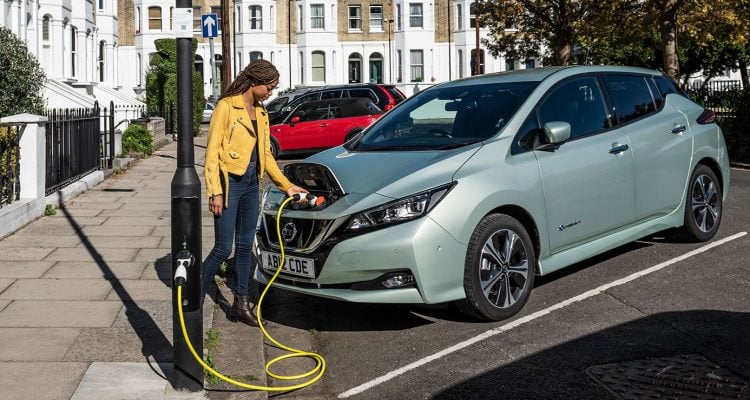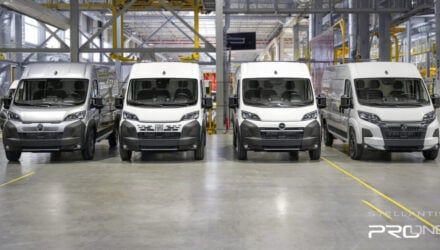They may have taken a while to get off the ground but Electric Vehicles (EVs) are surging in popularity. According to the Society of Motor Manufacturers and Traders (SMMT), more than 190,000 EVs were registered in the UK last year, accounting for 11.6% of all new cars. In the first five months of 2022, EV sales achieved a 14% market share.
Recent research revealed the main driving forces behind the acceleration in public adoption of EVs – aside from the cost savings available – have been the significant increase in battery range found in new models, as well as improvements in charging infrastructure across the UK.
The vast majority of drivers that switch to EVs would not go back but costs for new and second-hand EVs continue to be the biggest stumbling block for potential owners, making leasing the preferred option – especially for businesses looking to offer company cars.
One of the biggest opportunities for EVs is now coming from corporate businesses. A mixture of tax breaks, government grants and a complete offering of insurance, fuel costs, maintenance, and breakdown cover is proving to be an enticing offer for employees and businesses alike.
From an employer’s and employee’s point of view, there are a number of upfront benefits from offering company EVs.
Capital allowances for businesses that buy cars for employees to use are much higher for EVs than normal diesel or petrol models. A company purchasing a new EV before 31 March 2025 is entitled to claim 100% tax relief in the first year, compared to 18% for low-emission cars and 6% for all other models. For businesses that lease EVs, this should also lead to better leasing tariffs because of the reduction in whole-life costs.
Company cars can be expensive for employees because the annual Benefit-in-Kind (BiK) is based on the cash equivalent of the vehicle, calculated as a percentage of the car’s list price and its CO2 emissions. The BiK rate for EVs is pegged at 1% for the tax year 2021/22 and then set at 2% until 2024/25. The differences in cost to the employee and in Class 1A contributions by the employer can be hefty.
For example, a VW Golf with a P11D of £25,200 would attract a BiK rate of 31%. The total tax paid by an employee on 20% tax rate would be £4,686 over three years. By contrast, the same employee would pay £498 over the same period for a VW ID.4 with a P11D of £41,430.
One of the most popular methods for businesses to provide EVs to employees is through salary sacrifice schemes. A number of fleet specialists are offering these schemes which include insurance, servicing, replacement tyres and breakdown cover with the car.
Paul Gilshan, chief executive officer at fleet service provider Tusker recently stated: “If it wasn’t for salary sacrifice, EVs would not be financially viable for most people. Our latest order bank shows that subscribing to an EV can make financial sense for employees. Thanks to salary sacrifice, budget-conscious drivers need not give up either vehicle size to enjoy a saving for the safest, greenest vehicles.”
Tusker has been running a salary sacrifice scheme with EDF since February 2020. By July 2021, 500 employees had ordered an EV through the scheme and 14 additional employees were signing up each month. EDF employees on the salary sacrifice scheme reported savings of £150-£200 per month.
 When it comes to installing the charging infrastructure at workplaces to support the increased adoption of EV company cars, the UK government provides a voucher-based scheme that covers up to 75% of the total cost of purchase and installation of EV charge points. The Workplace Charging Scheme provides £350 per socket with a maximum of 40 sockets per applicant.
When it comes to installing the charging infrastructure at workplaces to support the increased adoption of EV company cars, the UK government provides a voucher-based scheme that covers up to 75% of the total cost of purchase and installation of EV charge points. The Workplace Charging Scheme provides £350 per socket with a maximum of 40 sockets per applicant.
Those whose primary place of work is a residential property can also apply for the grant under the scheme as long as the address is listed as their place of business with Companies House or HMRC.
SMEs with less than 250 employees can avail of the EV infrastructure grant which allows up to £15,000 each for five different sites. The charge points must be exclusively for staff or fleet use. A minimum of five parking spaces must be provisioned with charging infrastructure, at least one of which must have a working charge point.
Making charge points available to employees at their homes is another option being considered by employers. A study by Centrica Business Solutions in 2021 found that 34% of UK businesses were set to install EV charge points at employees’ homes. One of the biggest barriers, however, was managing the complexities involved in employees charging EVs at home and at public charging points.
This issue is being addressed through fleet charging management systems that enable home charge points to be integrated directly into a company’s payroll management software and to automatically reimburse drivers for their business-use energy consumption. The systems can create monthly statements for fleet managers, showing all charging transactions.
Fleet management solutions can also help employees easily find and access charge points. They can manage and track usage and payments and provide invoicing services.
The UK has a wide range of measures designed to help organisations increase usage of EVs in their fleets and by their employees. With plans to ban the sale of new diesel and petrol cars from 2030, the pressure is on organisations to ensure they are ready to switch to EVs in time, if not before the deadline. Many are already in the process of making the move.
Author: Alok Dubey, UK Country Manager at Monta, the one stop shop for all EV charging









